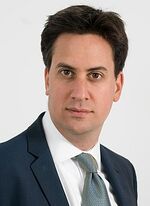1682 Reichstag elections
The 1682 Reichstag elections were the first elections after the connection of Gascony, Los Bananos and Ravaria, as a result of the Treaty of the Northern Hereditary Lands. In the process, a minor constitutional amendment was made, which affected the number of seats to be elected. Every two years, one third of the seats shall be elected. In these elections, 283 seats are eligible.
Preliminary
Constitutional amendment
Since the Constitutionem Vadum Francorum (Common Tongue: Constitution of Francia; Germanian: Frankfurter Reichsverfassung) was adopted, a ratio has been established between the number of inhabitants of Francia and the number of seats. This ratio is 75,000 citizens per seat, but due to the addition of 67 million inhabitants after the connection of Gascogne, Los Bananos and Ravaria, this was adjusted. The constitution was amended, making the ratio 100,000 citizens per seat. In addition, citizens from the autonomous regions were not counted, because these autonomous regions have their own parliaments and fall outside the jurisdiction of the Reichstag.
| 1674 | 1678 | 1682 | |
|---|---|---|---|
| Reichstag seats | 100 | 455 | 738 |
Due to the rapid increase in seats in the Reichstag, only the new seats were elected in 1678 and also in these elections. The existing seats were maintained, after 1682 AN they were made eligible for election.
Participation
The connection of Gascogne and Los Bananos (the Kingdom of Ravaria as an autonomous region is not counted) gave a new dimension to the party landscape. Until now, the party landscape has been dominated by the Amokolische Freiheitsfront (Common Tongue: Amokolian Freedom Front) and the Konservative Historische Partei (Common Tongue: Conservative Historical Party). Gascon parties in particular have applied to take part in these elections.
The Konservative Historische Partei and the Parti populaire de Gascogne (Common Tongue: Gascon People's Party; Germanian: Gasconse Volkspartei) are a unique collaboration. These parties form a joint fraction in the Reichstag (Germanian: Unionsfraktion), with the aim of being the largest fraction in the Reichstag.
Other new participants in the elections are:
- Elwynnische Einheitspartei (Common Tongue: Elwynnese unity party)
- Fränkische Patriotische Partei (Common Tongue: Frankish Patriotic Party)
- Parti social-démocrate (Common Tongue: Social Democratic Party)
Campaigning
With the rise of new parties, true election fever arose. This caused some chaos in the various media in Francia:
- The Konservative Historische Partei and the Parti populaire de Gascogne (KHP-PPG) form a joint campaign team to work towards a joint fraction. The campaign points are strengthening the local culture, expansion of the army and implementation of the right to firearms.
- The Amokolische Freiheitsfront (AFF) is trying the same cooperation with the Gascons sister party the Parti social-démocrate, but this failed. The front advocates free public transport, linking up educational institutions and reducing the power of the Kaiser.
- The Elwynnische Einheitspartei (EEP) starts the campaign with the slogan "One Elwynn and one Amokolia under one flag". The party strives for the creation of a Franco-Elwynnese Union.
- The Fränkische Patriotische Partei (FPP) calls for Benacia to be freed from all oppression, if necessary with weapons.
- The Parti social-démocrate (PSD) calls for a basic income for all, progressive taxation and a reduction of the voting age.
Chancellor candidates
The list leader of each party is Chancellor candidate, because the largest party in the Reichstag supplies the Chancellor. Since the revival of the Kingdom of Amokolia and then the Wende to the Frankish Empire, there has only been one Chancellor. Augustin Prager, sitting chancellor, is the list leader for the joint fraction of the Konservative Historische Partei and the Parti populaire de Gascogne.
Only the list leaders of the two incumbent parties are contenders. This has to do with the partial election of the Reichstag. New parties can only take part for the new seats, which means that they will not be big enough to have a chance to supply the chancellor. The following candidates on the list are also candidate chancellors:
| Augustin Prager | Henry Hirsh |
| Konservative Historische Partei and Parti populaire de Gascogne (KHP-PPG) | Amokolische Freiheitsfront (AFF) |
Results
| Fraction | Abbr. | Current seats | Seats won | Seats change | % |
|---|---|---|---|---|---|
| Amokolische Freiheitsfront | AFF | 131 | 42 | ▲173 | 23,4% |
| Elwynnische Einheitspartei | EEP | 0 | 28 | ▲28 | 3,8% |
| Fränkische Patriotische Partei | FPP | 0 | 81 | ▲81 | 11% |
| Konservative Historische Partei and Parti populaire de Gascogne | KHP-PPG | 324 | 61 | ▲385 | 52,2% |
| Parti social-démocrate | PSD | 0 | 71 | ▲71 | 9,6% |

